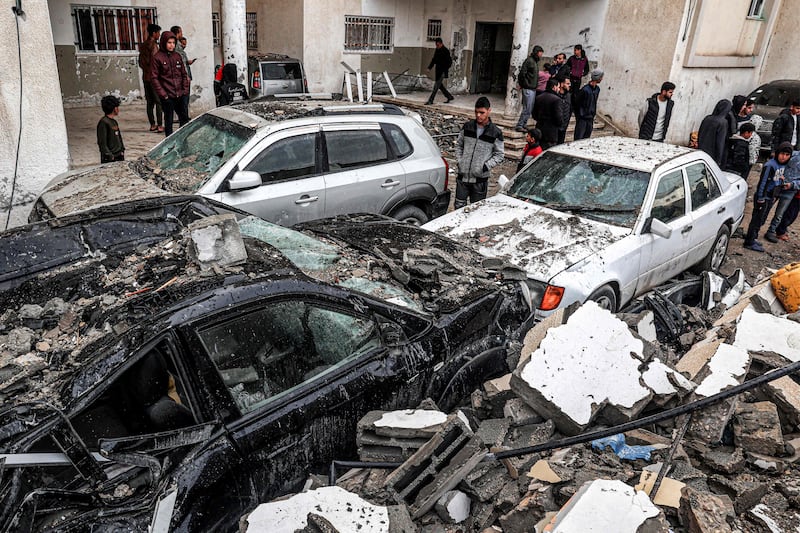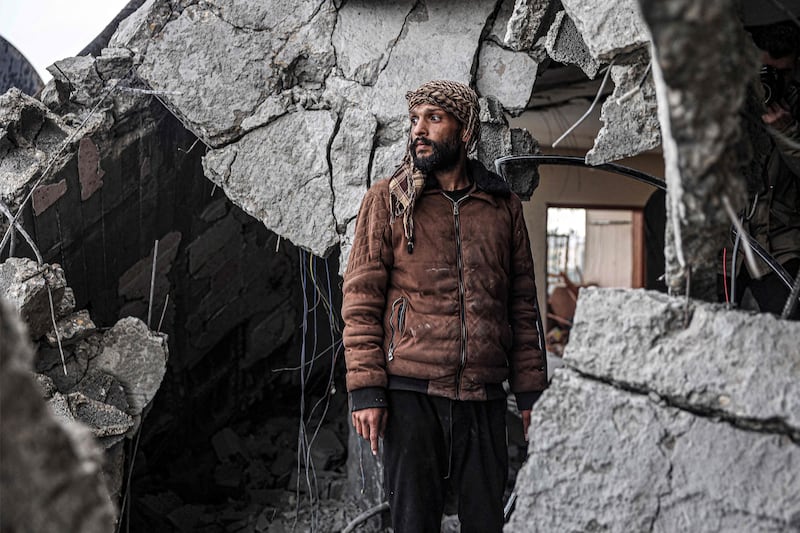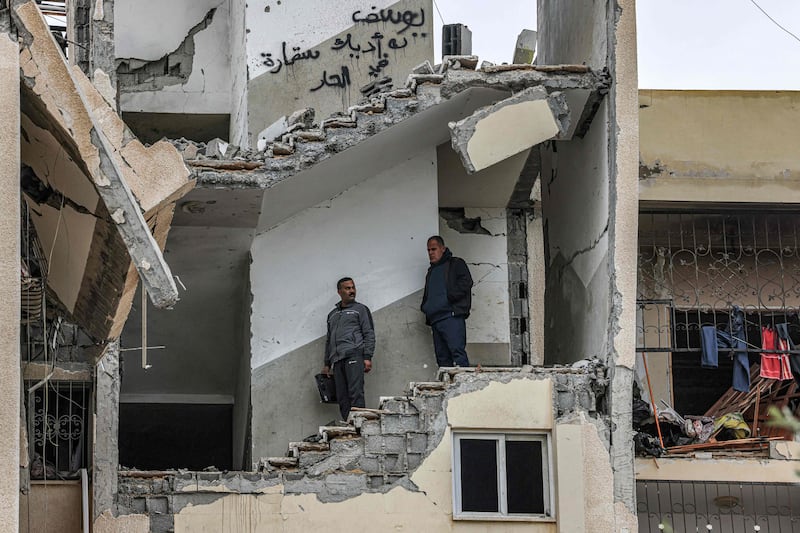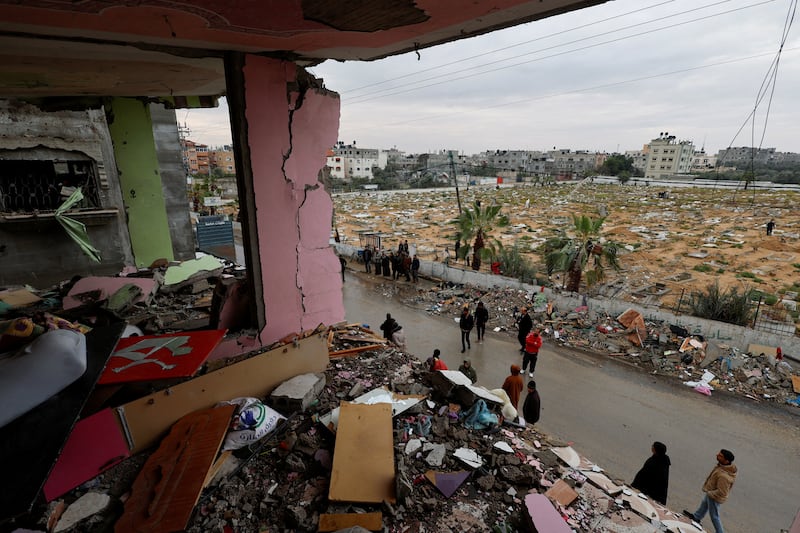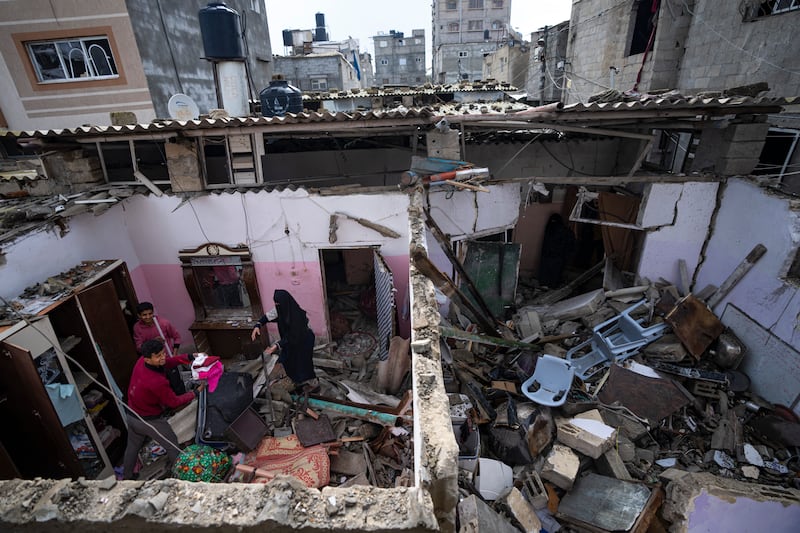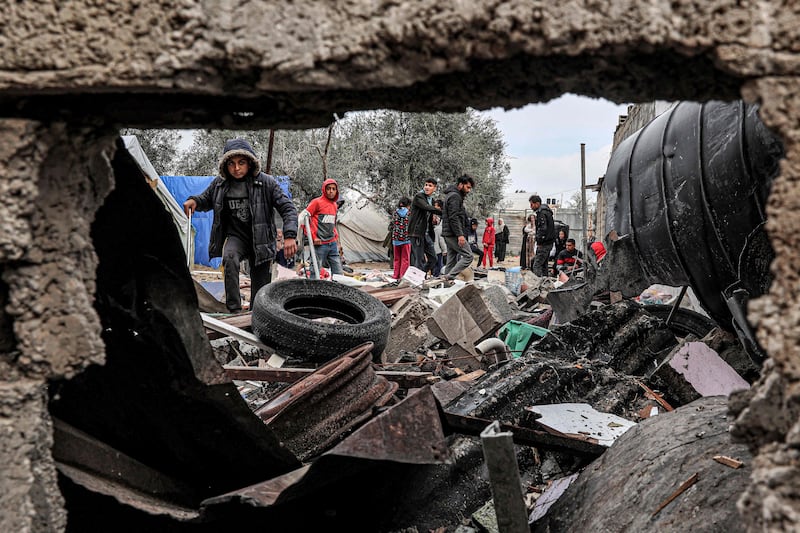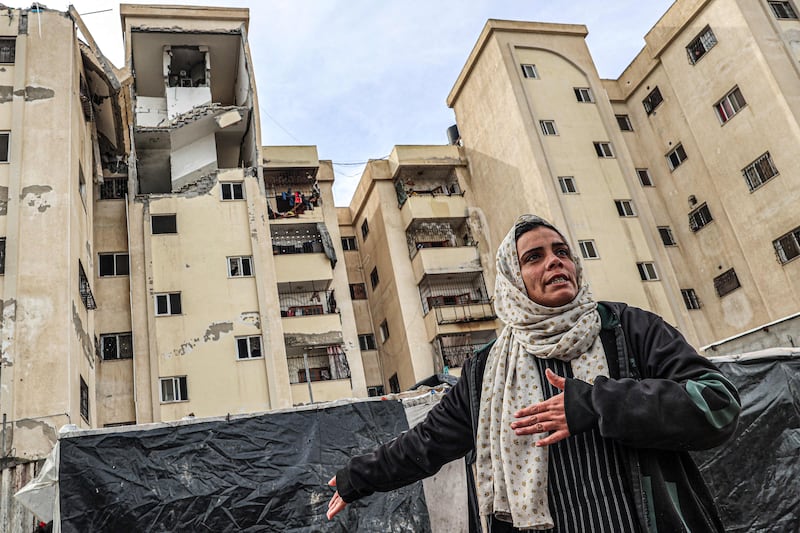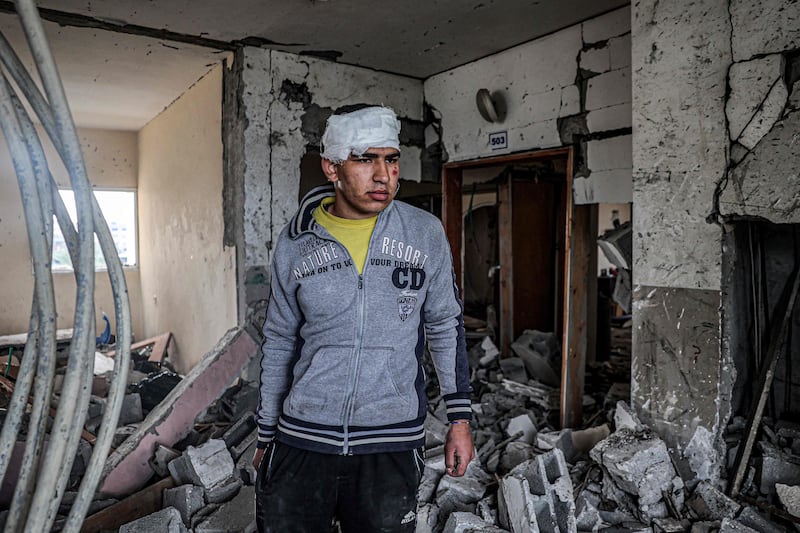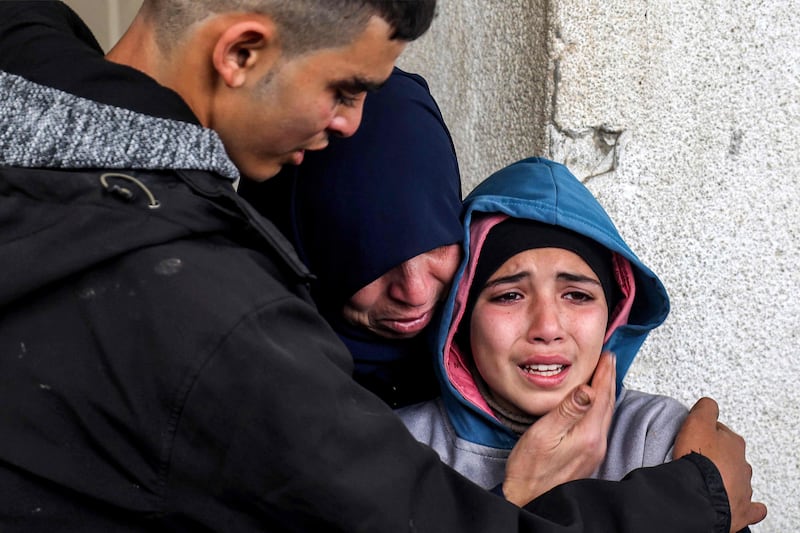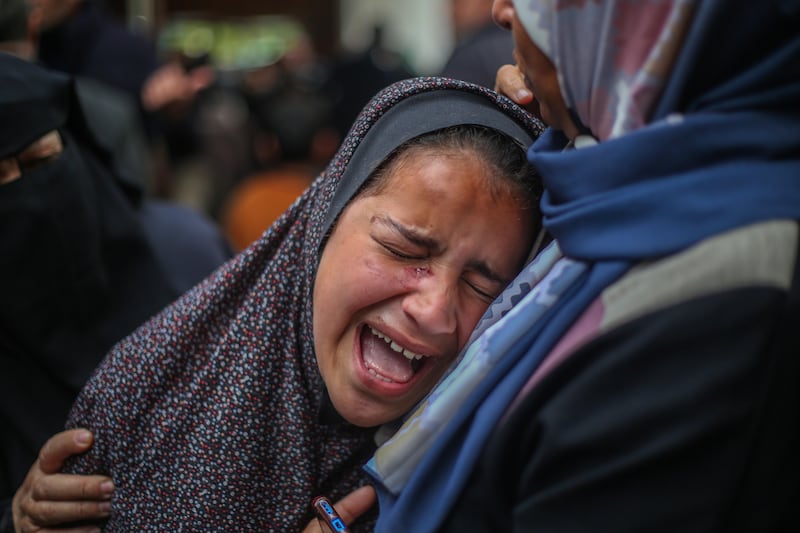Live updates: Follow the latest on Israel-Gaza
Israel must do much more to ensure civilian safety before pressing ahead with any invasion of Rafah, US Defence Secretary Lloyd Austin said on Tuesday, as the Pentagon indicated that such an offensive was still a way off.
Mr Austin's comments come after Prime Minister Benjamin Netanyahu said Israel would enter the southern Gaza city to destroy Hamas, with or without a ceasefire and hostage release deal.
More than one million Palestinians displaced by the war have sought refuge in Rafah since October 7 and the latest pressure from the US could force Israel to delay its invasion plans.
Mr Austin told the House Armed Services Committee that Israel had put some civilian safeguards in place, but stressed that these were inadequate.
Israel “must do what’s necessary to take care of these civilians that are not non-combatants and move them out of the battlespace, and take care of them wherever you move them to. And you have to allow sufficient time to do that appropriately,” Mr Austin said.
“I have seen them put some things in place, but you and I know that there’s a lot more that needs to be done before we can say that they’ve accounted for the civilians and taken care of them.”
Mr Austin said he had told Israeli counterparts that they must plan operations “sequentially”.
Protecting civilians “must be the first thing that must be done before they consider any other any other military operations”, he said.
Israel has approved military plans for its offensive and has positioned troops and tanks in the southern part of the country in apparent preparation for an invasion.
The timing, however, is unclear. A US defence official told The National that any invasion of Rafah did not appear to be on the immediate horizon.
“We are in constant contact with the Israelis on their plan for Rafah. We are not seeing anything imminent – they still have a very highly concentrated civilian population in Rafah,” the official said.
Israel has reaffirmed that it makes its own tactical decisions, but in reality, it can't afford to fall too far afoul of the US, its top military backer.

State Department spokesman Vedant Patel said that any kind of Israeli action in Rafah would face stiff US resistance if civilians are not protected.
“It continues to be the case that we have not seen a credible plan that would address the areas of concerns,” Mr Patel said.
“Any kind of operation that does not address some of these key concerns will certainly be opposed by us.”
UN Secretary General Antonio Guterres on Tuesday urged Israel not to invade Rafah, saying it would “be an unbearable escalation, killing thousands more civilians and forcing hundreds of thousands to flee”.
Separately, Mr Austin acknowledged that US forces working on the humanitarian aid pier that will be attached to the Gaza shore could be shot at.
He said they have the right to protect themselves and shoot back, if needed. He also noted that Israeli forces on land would be conducting security for the area.


